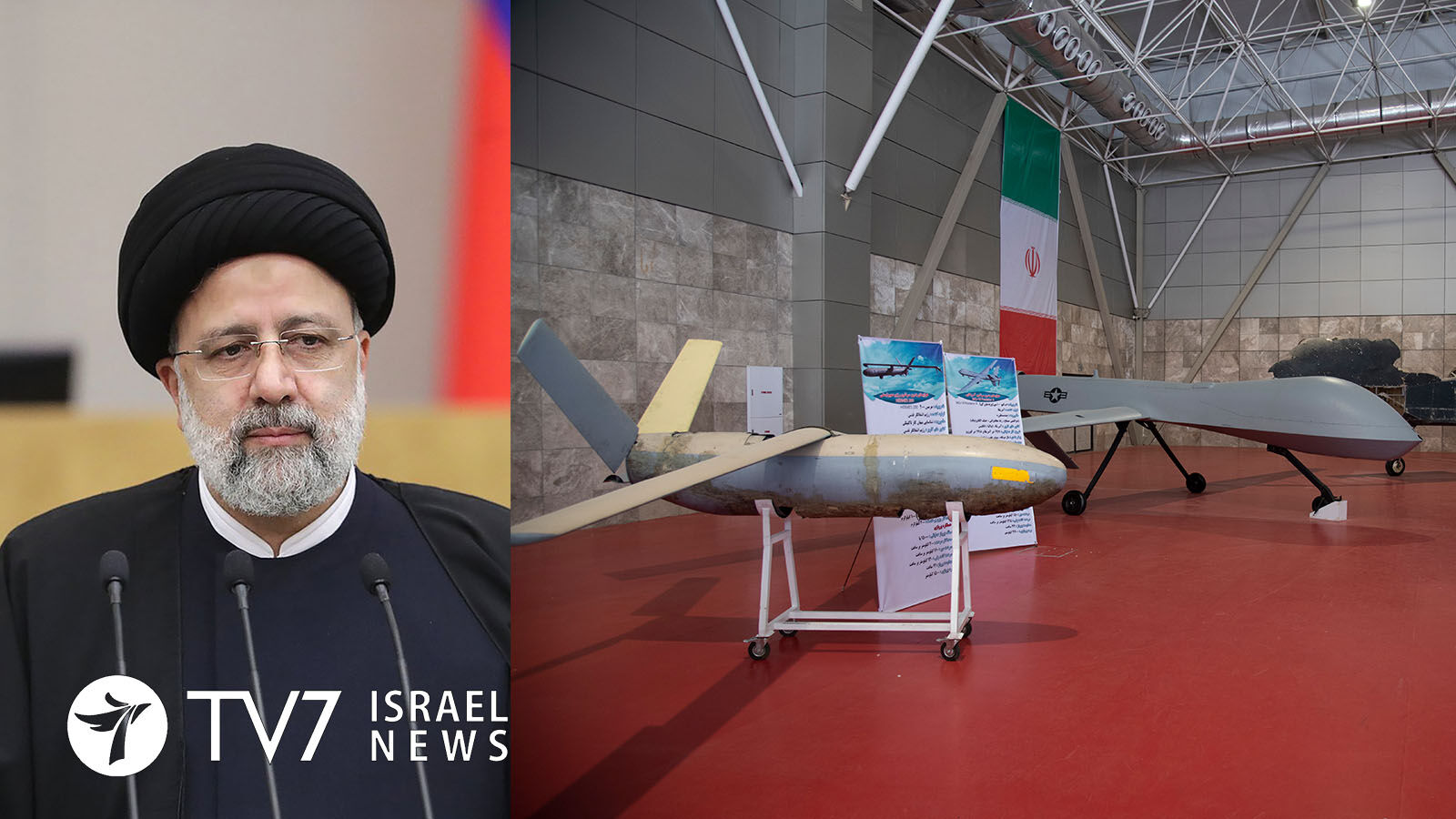Ukraine has reported that deadly Russian airstrikes in recent weeks have been carried out with Iranian-made Shahed-136 “suicide drones” that detonate upon impact.
By Jonathan Hessen and Erin Viner
Ukraine’s military said it has destroyed 37 drones launched by Russian forces since Sunday evening, amounting to about 85% of those used in attacks.
Russia invaded neighboring Ukraine 24 February in a war condemned by Israel and the West.
Ukrainian President Volodymyr Zelenskyy made specific mention of “missiles and Iranian drones” deployed by Russia to target “various regions of our country” during his evening address on Saturday.
Tehran has adamantly denied provision of the aircraft to Moscow for use against Kyiv.
“Unfortunately, news is published that stems from political goals and largely is developed upon by Western media. Just as it has countlessly announced, the Islamic Republic of Iran is not on any side of the war between Russia and Ukraine,” Foreign Ministry Spokesperson Nasser Kanaani told reporters during a weekly press conference, insisting that, “The Islamic Republic of Iran has not exported any weapon to any side of the war.”
The United States directly accused the Islamic Republic of lying, while the Kremlin has not commented on the reports.
The allegations come amid preparations by the European Union to impose travel bans and asset freezes of 15 Iranian officials involved in the human rights crackdown on a month-long anti-government protest over the death in police custody of 22-year-old Mahsa Amini.
Several EU foreign ministers on Monday called for sanctions against Iran for its alleged drone transfer to Russia.
Any use of “these Iranian-style kamikaze drones that we’re apparently seeing in Ukraine now” would mark “an escalation” of the conflict, stressed Austrian Foreign Minister Alexander Schallenberg ahead of talks with his counterparts in Luxembourg yesterday. “One thing is not participating – and another thing is actively supporting the war of aggression with material on the Russian side – that has a different dimension,” Vienna’s top diplomat stressed.
Luxembourg Foreign Minister Jean Asselborn agreed that additional EU sanctions would not be limited to blacklisting some individuals should Iran’s involvement in Russia’s war on Ukraine be substantiated.
Saying that are now analyzing “precisely” whether the Islamic Republic has supplied the aerial weaponry to Moscow, German Foreign Minister Annalena Baerbock commented that if “absolute confirmation” over the drone allegations results from contemporaneous investigation by Europe’s “competent services,” that “then we are in a different area, then some people who have been sanctioned is no longer enough.”
“It is clear that if this regime continues to target its people in this way, there will be further packages of sanctions targeted at those responsible,” said as she arrived at the meeting.
High Representative of the European Union Josep Borrell affirmed that “the discussion will continue” on the issue of drones” in search of concrete evidence” of Iranian involvement in the Ukraine conflict
The United States, Britain, France and Germany – all parties to the 2015 Joint Comprehensive Plan of Action (JCPOA) – concur that Tehran’s provision of the unmanned aerial vehicles (UAVs, drones) to Russia would violate United Nations Security Council Resolution 2231 that endorsed the nuclear deal with Iran.
Iran’s latest denial over the UAVs is highly reminiscent of previous dismissal of allegations it is developing nuclear weapons, despite glaring evidence to the contrary.
Last week, the United Nations General Assembly (UNGA) has adopted a resolution demanding Russia reverse course on its disputed claims over four regions in Ukraine.
“When it becomes a daily routine to watch images of destroyed cities and scattered bodies, we lose our humanity…We must find a political solution based on the UN Charter and the international law,” stressed UNGA President Csaba Kőrösi during the world body’s 11th Emergency Special Session on Ukraine. “The UN Charter, Secretary General António Guterres and the Assembly itself have been very clear that Russia’s invasion and its claim to Ukrainian territory by force is without doubt “‘illegal.’”
